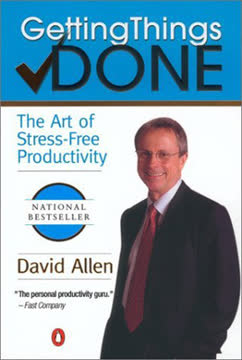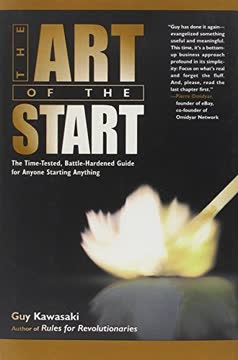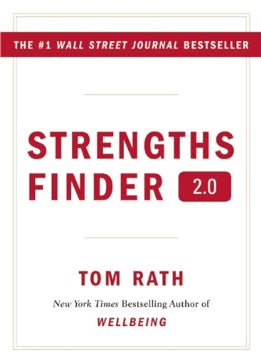Key Takeaways
1. Think Independently: Challenge Conventional Wisdom
The single most powerful pattern I have noticed is that successful people find value in unexpected places, and they do this by thinking about business from first principles instead of formulas.
Contrarian Thinking. The book emphasizes the importance of questioning widely held beliefs and thinking for oneself. It encourages readers to identify truths that few people agree with, as these contrarian insights can lead to innovative ideas and successful ventures. This involves looking beyond established models and formulas to discover unique opportunities.
The Contrarian Question. Peter Thiel poses the question, "What important truth do very few people agree with you on?" as a way to stimulate contrarian thinking. Answering this question requires intellectual rigor and courage, as it involves challenging popular beliefs and potentially facing criticism. It's about identifying areas where conventional wisdom may be flawed or incomplete.
Beyond Formulas. Successful individuals and businesses don't rely on pre-existing formulas or best practices. Instead, they think from first principles, questioning assumptions and seeking value in unexpected places. This approach allows them to create new solutions and capture opportunities that others miss.
2. Embrace Definite Optimism: Plan for a Better Future
To a definite optimist, the future will be better than the present if he plans and works to make it better.
Four Views of the Future. The book outlines four perspectives on the future: definite optimism, indefinite optimism, definite pessimism, and indefinite pessimism. Definite optimism, characterized by planning and working towards a better future, is presented as the most effective approach for creating progress and building successful ventures.
Definite vs. Indefinite. Definite optimism contrasts with indefinite optimism, where individuals expect the future to improve without specific plans. The book argues that indefinite optimism is unsustainable, as it lacks the concrete actions and strategies needed to drive meaningful change. It also contrasts with pessimism, which can be either definite (preparing for a bleak future) or indefinite (resigned to decline).
Planning and Action. Definite optimism involves actively shaping the future through careful planning and dedicated effort. This requires setting clear goals, developing strategies to achieve them, and taking consistent action to bring those plans to fruition. It's about taking control and creating the future you envision.
3. Strive for Monopoly: Avoid Competition
All happy companies are different: each one earns a monopoly by solving a unique problem.
Monopoly vs. Competition. The book argues that monopoly, not competition, is the ideal state for a business. Monopoly allows a company to capture lasting value and invest in long-term innovation, while competition leads to a race to the bottom and unsustainable profits. This is because capitalism is premised on the accumulation of capital, but under perfect competition all profits get competed away.
Creative Monopoly. The book distinguishes between destructive monopolies that stifle innovation and creative monopolies that drive progress. Creative monopolies offer new products or services that benefit society and create entirely new categories of abundance. These monopolies are earned through innovation and solving unique problems.
Monopoly Lies. Companies often downplay their monopoly status to avoid scrutiny, while competitive firms exaggerate their uniqueness to attract attention. Understanding these biases is crucial for accurately assessing market conditions and identifying true opportunities for monopoly.
4. Build a Strong Foundation: Get the Basics Right
A startup messed up at its foundation cannot be fixed.
Importance of Beginnings. The book emphasizes the critical nature of a startup's early decisions. Mistakes made at the founding stage, such as choosing the wrong co-founders or hiring the wrong people, are difficult to correct later on. This is because beginnings are special and qualitatively different from all that comes afterward.
Key Elements of a Strong Foundation:
- Founding Matrimony: Choosing co-founders wisely, ensuring shared values and complementary skills.
- Ownership, Possession, and Control: Aligning these elements to avoid conflicts and ensure effective governance.
- Full-Time Commitment: Prioritizing full-time employees who are fully invested in the company's mission.
- Equity over Cash: Using equity to incentivize long-term value creation rather than short-term gains.
Extending the Founding. The founding moment should extend as long as the company is creating new things, and it ends when creation stops. If you get the founding moment right, you can steer its distant future toward the creation of new things instead of the stewardship of inherited success. You might even extend its founding indefinitely.
5. Seek Secrets: Explore Untapped Opportunities
Every one of today’s most famous and familiar ideas was once unknown and unsuspected.
Secrets as Opportunities. The book argues that the world still holds many secrets waiting to be discovered. These secrets represent untapped opportunities for innovation and the creation of valuable companies. Finding these secrets requires challenging conventional wisdom and looking where others aren't.
Two Types of Secrets:
- Secrets of Nature: Undiscovered aspects of the physical world that can be revealed through scientific inquiry.
- Secrets About People: Hidden truths about human behavior, motivations, and desires.
Finding Secrets. The best place to look for secrets is where no one else is looking. This often involves exploring fields that are undervalued or overlooked, questioning assumptions, and challenging established norms. It also involves asking what people are not allowed to talk about.
6. Distribution is Key: Master Sales and Marketing
If you’ve invented something new but you haven’t invented an effective way to sell it, you have a bad business—no matter how good the product.
Distribution Matters. The book emphasizes that a great product alone is not enough for success. Effective distribution, encompassing sales, marketing, and advertising, is crucial for reaching customers and capturing market share. This is because customers will not come just because you build it.
Distribution Methods:
- Complex Sales: High-value, personalized sales for enterprise clients.
- Personal Sales: Building relationships with customers through direct interaction.
- Marketing and Advertising: Reaching a broad audience through mass media.
- Viral Marketing: Leveraging network effects to drive exponential growth.
Power Law of Distribution. One distribution channel is likely to be far more effective than others for a given business. Focusing on mastering that one channel is more important than spreading efforts across multiple channels.
7. Man and Machine: Embrace Complementarity
Computers are complements for humans, not substitutes.
Humans and Computers. The book argues that computers are not replacements for human workers but rather complements. The most valuable businesses of the future will be built by entrepreneurs who seek to empower people rather than make them obsolete. This is because people have intentionality, and computers excel at efficient data processing.
Complementary Businesses. The most successful businesses leverage the strengths of both humans and computers. This involves designing systems where computers handle data processing and analysis, while humans provide judgment, creativity, and strategic decision-making.
The Ideology of Computer Science. Computer scientists are often trained to focus on tasks that can be automated, leading to a bias toward substitution. However, the most valuable applications of technology involve enhancing human capabilities rather than replacing them.
8. The Founder's Paradox: Be Unusually Usual
Perhaps every modern king is just a scapegoat who has managed to delay his own execution.
Extreme Traits. Founders often exhibit extreme and contradictory traits, such as being both insiders and outsiders, or being both charismatic and difficult. These traits can be both a source of strength and a potential liability.
The Founder Distribution. The distribution of founders' traits follows an inverse normal distribution, with more individuals at the extreme ends of the spectrum than in the middle. This reflects the unusual combination of qualities that are often associated with successful entrepreneurs.
The Cycle of Extremes. Unusual people start the cycle, and it ends with them acting and seeming even more unusual. This cycle is reinforced by media attention and societal expectations, which can amplify both the positive and negative aspects of a founder's personality.
Last updated:
FAQ
What's "Zero to One" about?
- Innovation Focus: "Zero to One" by Peter Thiel is about creating new things and building companies that innovate rather than replicate existing models. It emphasizes moving from 0 to 1, which means creating something entirely new.
- Contrarian Thinking: The book encourages thinking differently and finding unique opportunities that others might overlook. It challenges readers to identify secrets that can lead to groundbreaking businesses.
- Monopoly Over Competition: Thiel argues that successful businesses are those that create monopolies by offering something unique and valuable, rather than competing in crowded markets.
- Future of Technology: The book explores the future of technology and how entrepreneurs can shape it by focusing on complementarity between humans and machines.
Why should I read "Zero to One"?
- Entrepreneurial Insight: It provides valuable insights for entrepreneurs looking to build successful startups by focusing on innovation and unique value propositions.
- Strategic Thinking: The book offers strategic thinking tools for identifying and capitalizing on untapped opportunities in the market.
- Challenging Conventions: Thiel challenges conventional wisdom about competition and encourages readers to think differently about business success.
- Practical Advice: It includes practical advice on building a strong company culture, choosing the right team, and navigating the challenges of startup life.
What are the key takeaways of "Zero to One"?
- Monopoly Creation: Successful companies create monopolies by offering unique products or services that are significantly better than competitors.
- Secrets and Innovation: Finding secrets—unknown truths about the world—can lead to innovative business ideas and opportunities.
- Complementarity with Technology: The future of business involves complementing human capabilities with technology, rather than replacing humans with machines.
- Importance of Foundations: Building a strong foundation with the right team and structure is crucial for long-term success.
What is the "Zero to One" concept?
- From 0 to 1: The concept refers to creating something entirely new, as opposed to improving existing products or services (going from 1 to n).
- Innovation vs. Replication: It emphasizes innovation over replication, encouraging entrepreneurs to focus on groundbreaking ideas.
- Unique Value Creation: The goal is to create unique value that sets a company apart from competitors, leading to a monopoly.
- Singular Moments: The act of creation is a singular moment that results in something fresh and unprecedented.
How does Peter Thiel define a monopoly in "Zero to One"?
- Unique Offering: A monopoly is a company that offers a product or service so good that no other firm can offer a close substitute.
- Market Control: Monopolies have control over their market, allowing them to set prices and maximize profits.
- Creative Monopolies: Thiel argues that creative monopolies drive progress by providing new choices and abundance to society.
- Long-term Planning: Monopolies can make long-term plans and invest in ambitious projects, unlike companies in competitive markets.
What is the role of secrets in "Zero to One"?
- Undiscovered Opportunities: Secrets are unknown truths that can lead to innovative business ideas and opportunities.
- Contrarian Thinking: Finding secrets requires contrarian thinking and the willingness to explore areas others overlook.
- Natural and Human Secrets: Thiel distinguishes between secrets of nature (undiscovered scientific truths) and secrets about people (hidden human behaviors).
- Business Success: Successful companies are built around secrets that give them a competitive edge and create unique value.
How does "Zero to One" address the future of technology?
- Complementarity with Humans: Thiel emphasizes the complementarity between humans and machines, where technology enhances human capabilities.
- Beyond Substitution: The book argues against the notion that technology will replace humans, instead suggesting that it will empower them.
- Innovation Opportunities: Entrepreneurs should focus on how technology can solve hard problems and create new opportunities.
- Long-term Vision: The future of technology involves planning and creating new things that make the world better, not just different.
What is Peter Thiel's view on competition in "Zero to One"?
- Competition vs. Monopoly: Thiel argues that competition is destructive and that businesses should aim to create monopolies.
- Value Capture: In competitive markets, profits are eroded, whereas monopolies can capture lasting value.
- Creative Monopolies: Monopolies are beneficial because they drive innovation and provide new choices to consumers.
- Avoiding Competition: Entrepreneurs should avoid entering crowded markets and instead focus on creating unique solutions.
How does "Zero to One" suggest building a strong company culture?
- Mission Alignment: A strong company culture aligns employees with the company's mission and values.
- Team Cohesion: Thiel emphasizes the importance of hiring people who work well together and share a common vision.
- Unique Identity: Successful startups have a unique culture that differentiates them from other companies.
- Long-term Relationships: Building durable relationships within the company is crucial for long-term success.
What are the best quotes from "Zero to One" and what do they mean?
- "Every moment in business happens only once." This quote emphasizes the uniqueness of opportunities and the importance of seizing them.
- "What valuable company is nobody building?" It challenges readers to think about untapped opportunities and secrets that can lead to successful businesses.
- "Monopoly is the condition of every successful business." Thiel argues that creating a monopoly is essential for capturing lasting value and driving innovation.
- "The most contrarian thing of all is not to oppose the crowd but to think for yourself." This quote highlights the importance of independent thinking in identifying unique opportunities.
How does "Zero to One" address the concept of risk?
- Calculated Risk: Thiel encourages taking calculated risks by focusing on unique opportunities and secrets.
- Avoiding Competition: By avoiding crowded markets, entrepreneurs can reduce risk and increase the chances of success.
- Long-term Planning: Building a strong foundation and planning for the long term can mitigate risks and ensure sustainability.
- Innovation Over Imitation: Innovating rather than imitating reduces the risk of being outcompeted and increases the potential for creating a monopoly.
What is the significance of the "Founder's Paradox" in "Zero to One"?
- Extreme Traits: Founders often have extreme and contradictory traits that set them apart from others.
- Insider/Outsider Status: Successful founders are both insiders and outsiders, able to navigate different worlds and perspectives.
- Media Perception: The media often exaggerates founders' traits, creating a cycle of myth-making and public perception.
- Leadership Impact: A distinctive founder can inspire loyalty and drive a company to achieve extraordinary success.
Review Summary
The reviews for Zero to One, Start Now Get Perfect Later, Shoe Dog A Memoir by the Creator of Nike, [Hardcover] Crushing It 4 Books Collection Set are generally positive, with an overall rating of 4.38 out of 5 stars based on 625 reviews. One reader expressed enthusiasm to read the book for free, while another praised it as "very terrific," giving it a perfect 5-star rating. The high average rating suggests that most readers found the book collection valuable and insightful, though specific details about the content or individual books in the set are not provided in these brief reviews.
Similar Books









Download PDF
Download EPUB
.epub digital book format is ideal for reading ebooks on phones, tablets, and e-readers.
![Zero to One, Start Now Get Perfect Later, Shoe Dog A Memoir by the Creator of Nike, [Hardcover] Crushing It 4 Books Collection Set](https://images.sobrief.com/social/cover_zero-to-one-start-now-get-perfect-later-shoe-dog-a-memoir-by-the-creator-of-nike-hardcover-crushing-it-4-books-collection-set_360px_1747184952.jpg)




